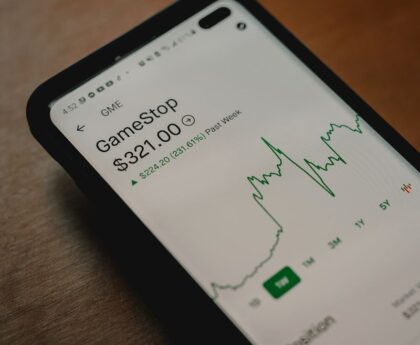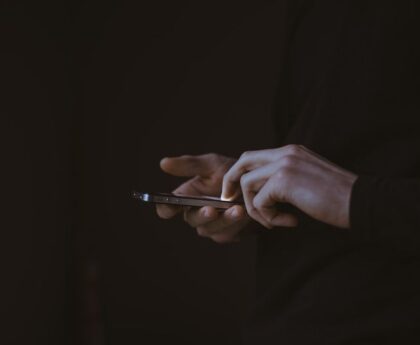South Korea to Toughen Punishments for Technology Leaks in Chips and Displays
Introduction
South Korea has announced plans to reinforce sentencing for stealing industrial secrets in an effort to combat technology leaks. The move comes amid concerns that existing regulations are not strong enough to deter attempts to funnel valuable technologies from companies like Samsung. South Korea, which has been cracking down on technology leaks in recent months, wants to safeguard its lead in memory chips and displays against competitors. The country’s Sentencing Commission, overseen by the Supreme Court of Korea, has decided to toughen punishments and lengthen jail times for leaking South Korean technology. This decision is expected to be followed by the introduction of new sentencing guidelines early next year.
The Importance of Technology Security
Maintaining technology security is crucial for any country aiming to stay at the forefront of innovation and economic growth. In our increasingly interconnected world, the theft of valuable technological information poses a significant threat to a nation’s national and economic security. South Korea, which has established itself as a global leader in memory chips and displays, is particularly vulnerable to such leaks. These technologies are not only essential for the country’s economy but also play a crucial role in various sectors, including telecommunications, consumer electronics, and automotive industries. Therefore, it is imperative for South Korea to take strong measures to protect its technological advancements and prevent their unauthorized transfer to competitors, especially in countries like China.
Existing Penalties and Challenges
South Korea’s penalties for technology leaks are similar to those in other countries, including jail terms of five years or more for leaking technology with “significant impact on national and economic security.” However, in practice, the sentencing falls short due to challenging requirements that prosecutors must meet. The industry ministry has expressed concern that existing rules necessitate proving a suspect’s intent to leak secrets, often resulting in acquittals or suspended sentences. According to the ministry, this has been the case in 30% and 54% of technology leak-related cases, respectively. Recognizing the limitations of the current system, the Sentencing Commission has decided to revise the guidelines and impose stricter penalties on offenders.
Targets and Suspected Destination
While the industry ministry did not explicitly mention the country being targeted, analysts suggest that China is the primary destination for the bulk of South Korean technology leaks. China has been making significant strides in various technological sectors and is eager to bridge the gap between its domestic capabilities and those of established rivals such as South Korea. By acquiring advanced technologies through illicit means, China could potentially accelerate its own progress and pose a threat to South Korean companies’ market dominance. With this in mind, it is essential for South Korea to strengthen its defenses against the unauthorized transfer of technology and protect its position as a global leader.
Revised Draft Law
In addition to toughening punishments for technology leaks, a revised draft law will include regulations to block leaks that had not been previously regulated. For instance, leaks that occur after a foreign private equity fund buys out a South Korean company will also be subjected to the new regulations. This expansion of the law demonstrates South Korea’s commitment to closing any gaps that may exist in its ability to prevent technology leaks. By addressing previously unregulated leaks, South Korea aims to maintain a comprehensive and robust framework to safeguard its technological advancements.
The Impact of Crackdowns and Arrests
South Korean authorities have been taking decisive action against technology leaks. In a nationwide investigation conducted over the past four months, 77 people have been arrested in 35 cases of suspected industrial espionage. These arrests signal the government’s determination to protect its technological assets and strike a blow against those engaged in illicit activities. By apprehending individuals involved in technology leaks, South Korea sends a clear message that such actions will have severe consequences.
Editorial and Advice
A Philosophical Perspective on Technology Security
The issue of technology security raises important philosophical questions about the balance between progress, knowledge sharing, and protecting national interests. While technological advancements have the potential to improve lives and drive economic growth, they also have the capacity to be misused or stolen. Nations must find a way to foster innovation and global collaboration while safeguarding their own advancements. Striking this balance requires robust legal frameworks, international cooperation, and ethical considerations.
The Importance of International Cooperation
Given the global nature of technology leaks, international cooperation is crucial in addressing this problem effectively. Countries must work together to establish common standards and mechanisms to prevent the unauthorized transfer of sensitive technologies. Cooperation between South Korea and China, in particular, should focus on mutual respect for intellectual property rights and a commitment to fair competition. By fostering stronger bilateral relationships, both countries can benefit from knowledge sharing and promote responsible technological advancements.
Advice for South Korea
To strengthen its technology security measures, South Korea should consider the following strategies:
1. Enhance Legal Frameworks
South Korea should continue to review and revise its laws to ensure they are up to date with the ever-evolving technological landscape. By addressing the challenges and limitations of the current legal system, South Korea can create a framework that effectively deters technology leaks and holds offenders accountable.
2. Increase Education and Awareness
Public awareness campaigns should be implemented to educate individuals and companies about the importance of technology security and the potential consequences of technology leaks. By fostering a culture of responsibility and awareness, South Korea can encourage individuals and organizations to prioritize the protection of sensitive technologies.
3. Strengthen Cybersecurity Measures
In addition to addressing physical theft of technology, South Korea should bolster its cybersecurity defenses to protect against digital breaches. Ensuring that networks, databases, and critical infrastructure are secure is essential in preventing unauthorized access to valuable technological assets.
4. Foster Innovation and Research
South Korea should continue to invest in research and development to maintain its competitive edge. By fostering a culture of innovation and pushing the boundaries of technological advancements, South Korea can stay ahead of potential competitors and reduce the incentive for technology leaks.
In conclusion, South Korea’s decision to toughen punishments for technology leaks is a significant step toward protecting its valuable intellectual property. By strengthening its legal framework, fostering international cooperation, and implementing robust cybersecurity measures, South Korea can maintain its position as a global leader in technological innovation while safeguarding its national and economic security.

<< photo by Bob Brewer >>
The image is for illustrative purposes only and does not depict the actual situation.
You might want to read !
- Bayern Munich bolsters defense with signing of South Korean talent Kim Min-jae
- Bayern Munich Bolsters Defense with South Korean Sensation Min-jae
- South Korean Actress Park Soo-ryun Dies at 29 After Falling Down Stairs
- Bitcoin price sinks as investors withdraw $1 billion from crypto
- Bitcoin’s Value Plunge Continues, Shrinking by Almost 8%
- China’s Evergrande: The Spectacular Fall and Implications of a Corporate Bankruptcy
- Nuclear Progress: Japan’s Fukushima Plant Releases Treated Water into Ocean
- Canada’s Water Management Strategies Contribute to Lake Mead’s Rise in Water Levels
- Is the Ford Mustang GTD the Ultimate Race Car for the Road? | GRR
- Taylor Swift’s Canadian Concert Tickets: Early Sales and Fan Frenzy Explained
- Justice Prevails: Leslie Van Houten, Charles Manson Follower, Moves Closer to Accountability
- “Reinstated and Ready: Logan Mailloux Regains Eligibility to Return to Canadiens Lineup”
- Canadian Justice System Grapples with Sentencing Teen Mackenzie Shirilla to Life in Prison
- “Reflecting on the Horrors: Examining the Case of Ian Watkins, Former Lostprophets Singer and Convicted Pedophile”




